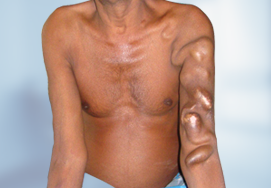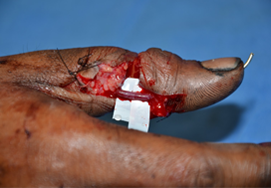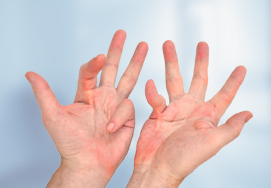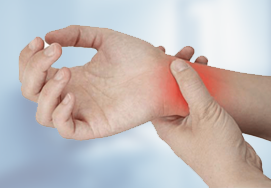Nerve Repairs
Recommended when the nerve injury occurs due to laceration or severe stretch injuries, focal contusion (gunshot wounds), severe compression, drug injection injury, severe electrical injury

- What is Nerve repair and Nerve grafting?
- Which individuals are suitable for nerve repair and nerve grafting?
- How should I prepare for the surgery?
- What happens during the procedure?
- What is the aftercare of the surgery?
- What are the postsurgical considerations?
What is Nerve repair and Nerve grafting?
Nerves are bundle of fibers that help transmit sensory and motor information from one part to another through chemical and electrical impulses.
Nerve injuries are most common in the upper and lower extremities. An injury to a nerve may cause paralysis to the muscle, loss of sensation, or pain. Nerve palsy may occur because of trauma and medical disorders. The decision of treatment, either surgical or non-surgical, is made based on the exact location of the nerve and severity of the nerve injury. Surgical procedures for severe nerve damage aims to restore the nerve function.
A nerve repair is a delicate and precise surgical procedure that involves identification of nerve ends, freshening of nerve ends and reconnecting the two ends with microsutures under operating microscope. This technique is preferred if there is enough length at two nerve endings that allows a good quality repair without tension.
The nerve grafting involves transplantation of all or a part of nerve (graft) to join the nerve ends when there is a nerve gap. In severe injuries, segmental loss of nerves leads to nerve gap which prevents repair of nerve ends. The nerve grafts are used to bridge the end of the nerve is used to connect the injured nerve endings, and thus provides regrowth of the nerve.
Which individuals are suitable for nerve repair and nerve grafting?
Your surgeon may choose nerve repair or nerve grafting if your nerve injury is severe and will not recover without surgery.
The surgery is recommended when the nerve injury occurs due to:
- laceration or severe stretch injuries
- focal contusion (gunshot wounds)
- severe compression of nerve ends in fractures.
- drug injection injury
- Electrical burns with nerve injury
How should I prepare for the surgery?
Before the surgery, you must:
- Discuss the surgical procedure and post operative protocol with the surgeon.
- Avoid certain medications such as aspirin that may cause bleeding complications during and after the surgery
- Avoid smoking and alcohol consumption atleast two weeks prior to the surgery
What happens during the procedure?
Nerve repair: The most common procedure used is epineural repair. Your will be given anesthesia before the procedure. The aim of the procedure is an adequate re-alignment of the injured nerve. The surgical procedure is performed using an operating microscope. In this technique, the entire nerve trunk is sewn and by placing the sutures through the epineurium or by placing a single suture through the axial center of the affected nerve trunk. Your surgeon uses jeweler’s forceps to grasp and stretch the epineurium for suturing. The number of sutures depends on the diameter of the injured nerve.
Nerve grafting: You will be administered anesthesia. In this procedure, your surgeon uses a segment of unrelated nerve which is usually taken from sural nerve in the leg, or the medial antebrachial cutaneous nerve of the arm to replace an injured portion of the nerve. Thus, your surgeon harvests the portion of the nerve as a graft material, and a bridge is created that fills the nerve gap due to an injury. Nerve graft may leave a scar on the affected area.
What is the aftercare of the surgery?
The complete recovery after nerve repair or graft may take several months. Following a repair or a graft, the nerve develops at a rate of 1mm each day. After the surgery, the operated site is kept immobilized by splinting for atleast 10 to 14 days. If your motor nerve is injured, then the surgeon may ask you to move it slowly to prevent stiffness. If your sensory nerve is injured, you should avoid contact with very hot, very cold, or sharp objects so as to prevent any accidental injury to the area. Once the wound is well healed, you should massage the wound for at least three times a day with a bland soft, cream for 3 months to prevent scarring.
What are the postsurgical considerations?
The surgical complications include pain, infection, bleeding and delayed wound healing at the primary surgical site or the donor site. As the surgery involve nerves regeneration the sensory or motor function will depend upon the nerve ends, type of repair and time from injury, level of nerve injury.














